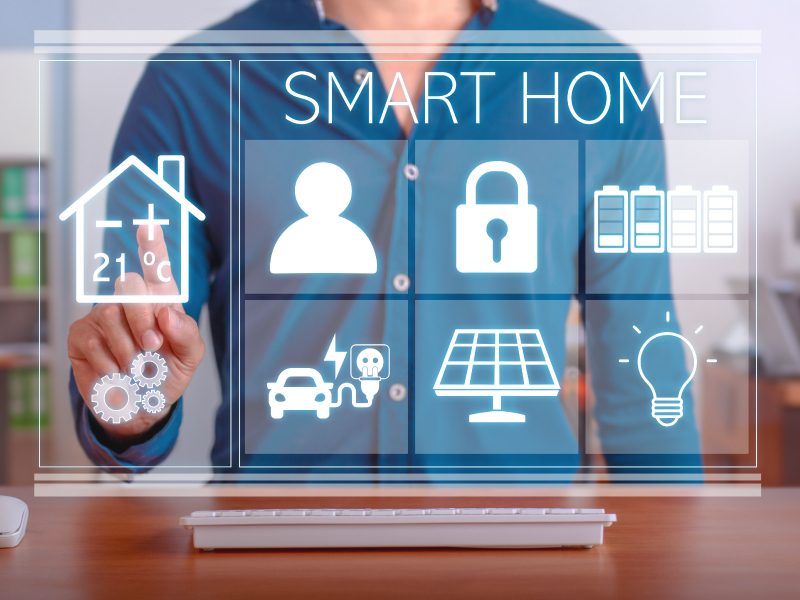Why Everyone’s Suddenly Talking About Smart Homes
Let’s start with a simple question. When you imagine your dream home, what do you see? Maybe a wide balcony where you can sip your evening tea, or a spacious kitchen where you don’t feel cramped. Some people dream of a luxury apartment in a prime location where the city buzz is close yet not overwhelming. But over the past few years, there’s another item sneaking onto people’s dream-home checklist—smart home technology.
And it’s not just about showing off to neighbors that your lights switch on with a clap. That’s surface-level stuff. The real reasons are comfort, safety, saving on bills, and yes, property value. Developers and real estate builders have realized this. That’s why you’ll see them advertising smart features as part of new projects, especially in the segment of luxury apartments, but also creeping into mid-budget ones.
This article is written with you in mind. Maybe you’re a professional who spends long hours at work and just wants a home that makes life easier. Maybe you’re a parent worried about security and energy bills. Or maybe you’re an investor keeping an eye on what’s driving property demand. Whoever you are, by the end of this, you’ll understand why smart home technologies are influencing buying decisions in ways we didn’t think possible a decade ago.
So, What Exactly Is a Smart Home?
People throw the term around a lot, but what does it actually mean? A smart home is simply a house or apartment where devices are connected and can be controlled remotely or automatically. Instead of you adjusting the home all the time, the home adjusts itself for you.
A few examples will make it clearer:
Smart lighting that brightens when you walk into a room and dims when you leave.
Smart locks and cameras that show you who’s at the door—even when you’re miles away at work.
Voice assistants like Alexa, Google Home, or Siri that help you with everything from playing music to turning off the AC.
Smart thermostats that save on electricity bills by learning your patterns.
Smart appliances—imagine a fridge that tells you the milk is running low.
It may sound futuristic, but honestly, it’s here already. Walk into newly launched luxury apartments in any metro city, and you’ll notice smart features being pitched as standard. Slowly, this isn’t even being sold as a premium add-on anymore—it’s becoming the expectation.
Bonus: 10 Things That Instantly Make a 4 BHK Apartment Feel Luxurious
Why Smart Homes Are Driving Property Demand
So here’s the million-dollar question: why are smart homes suddenly such a big factor in property demand? Let’s break it down.
1. Safety and Security Matter More Than Ever
If you live in a big city, safety is always at the back of your mind. People want to know their families are safe even when they are away. Smart locks, video doorbells, motion sensors—these are not toys, they’re peace of mind. And when buyers see these features pre-installed, they’re more likely to say yes to a property. Especially when it comes to luxury apartments, these systems are almost non-negotiable now.
2. Convenience Is King
After a long day at work, the last thing you want is fumbling with switches. Imagine saying “goodnight” and all lights go off, doors lock, and AC shifts to energy-saver mode. That kind of convenience makes buyers fall in love with homes instantly. Convenience sells. Always has, always will.
3. Energy Efficiency and Savings
Let’s be honest—energy bills are painful. But a smart thermostat, efficient lighting, and energy-monitoring systems save money over time. Families and investors both know that a smart home isn’t just about comfort—it’s about reducing long-term costs. And in today’s economy, savings talk louder than sales pitches.
4. Resale and Investment Value
Properties with smart systems installed tend to fetch higher resale value. If you’re an investor, this is where your ears perk up. Buyers see smart features as modern and future-ready, and that makes them more willing to pay extra. In many metro projects, especially luxury apartments, developers highlight smart home readiness as a key selling point for higher returns.
5. Lifestyle Appeal
A smart home feels premium. It signals modern living. Younger buyers especially love the idea of a home that syncs with their digital lifestyle. Just like granite countertops and modular kitchens became status symbols, smart features are the new must-have lifestyle upgrade.
Smart Features That Buyers Actually Care About
Now let’s get practical. Not every shiny gadget makes a difference in property demand. Some are gimmicks. But a few smart features consistently drive demand.
Smart Security Systems
Buyers want smart door locks, video doorbells, motion detectors, and surveillance cameras that they can access through their phone. Security is one of the strongest drivers.
Smart Lighting
It’s not just about mood lighting—it’s about energy savings and convenience. Motion-activated lighting is a small touch that feels big when buyers experience it.
Climate Control
Smart thermostats and air conditioning systems that learn patterns and save energy are a huge hit. In hot climates, this feature is golden.
Integrated Voice and App Control
Having everything controlled through a single app or voice command makes buyers feel the property is truly modern. No one wants ten remotes lying around.
Smart Kitchens
This is becoming a big attraction in luxury apartments. Ovens that pre-heat with a tap, refrigerators that notify you about groceries, and dishwashers you can schedule from your office desk—it all adds a premium touch.
Bonus: Smart Home Selling Tips to Maximize Your Property’s Value
The Link Between Luxury Apartments and Smart Homes
You can’t really talk about smart homes without touching on luxury apartments. They’re the testing ground. Most new luxury projects now come with built-in smart systems. Developers know their target buyers want convenience, safety, and status appeal.
Interestingly, even middle-class buyers are warming up to the idea. While they may not demand every smart feature, they want at least basic automation and security in their homes. This “trickle down” effect means demand for smart features will spread beyond just luxury apartments.
How Smart Homes Influence Buyer Psychology
Here’s something I’ve noticed after decades of writing about property trends—buyers don’t just buy homes; they buy peace of mind, convenience, and lifestyle dreams. Smart homes tick all these boxes.
They feel safer, so buyers emotionally lean towards those properties.
They feel more modern, which taps into the desire for status and lifestyle.
They save money, which appeals to the logical side of buyers.
It’s the perfect mix of emotional and rational triggers. Today, many real estate developers and marketers also create social media posts with a social media post maker to highlight these smart features—helping potential buyers visualize the modern lifestyle and comfort that such homes offer.
Are Smart Homes Just a Trend or the Future?
Some might say, “Oh, this is just another fad like waterbeds in the 80s.” But smart homes are different. Why? Because they solve real problems—safety, bills, convenience. These aren’t luxuries, they’re becoming necessities.
As more people experience smart living, the demand will only rise. In a few years, it won’t even be called a smart home anymore—it’ll just be called home.
Bonus: 25 Interior Design Trends Dominating New Modern Apartments in 2025
FAQs About Smart Homes and Property Demand
Q1: Do smart homes really increase property value?
Yes. Homes with smart features sell faster and often at higher prices. Especially in luxury apartments, buyers expect them.
Q2: Are smart features expensive to install?
Not always. Basic smart systems like lights and locks are affordable. High-end systems can cost more, but they add resale value.
Q3: Is a smart home safe from hacking?
Good question. Developers are focusing more on cyber security now. Buyers should always choose systems with strong encryption.
Q4: Do investors benefit from smart-ready homes?
Absolutely. Rental yields and resale values are higher for smart-ready apartments. Tenants also prefer such homes.
Q5: Will all future homes be smart?
Most likely, yes. Just like we can’t imagine a home without electricity or internet today, in 10 years, smart systems will be the norm.
Conclusion: The Smart Home Advantage
So, what’s the big takeaway? Smart homes aren’t just about cool gadgets. They’re about comfort, safety, savings, and lifestyle appeal. And because they touch both the emotional and rational sides of a buyer’s decision, they’re boosting property demand in a very real way.
For families, it’s about security and ease. For professionals, it’s about convenience and modern living. For investors, it’s about better returns and faster sales. And for developers, it’s the future of marketing.
At the end of the day, a smart home is no longer a luxury—it’s becoming the baseline expectation. And those who understand this shift—whether as buyers or investors—will always stay a step ahead in the property game.

